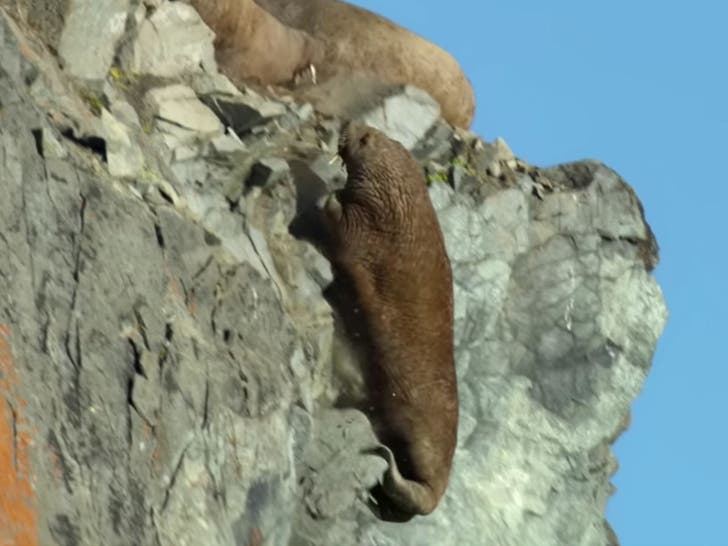The new Netflix series "Our Planet" is pissing off some viewers distraught about graphic images of walruses falling to their deaths -- but the studio is standing behind the filmmakers and the disturbing scene.
In case you haven't heard, Netflix dropped the multi-episode series Friday. It documents the effects of climate change on wildlife around the globe. One episode focuses on Russian walruses that are dying off due to receding ice levels.
In covering the epidemic, filmmakers recorded several walruses scaling rocky cliffs near the ocean, and some of them fell over the ledge ... leaving them seriously injured or even dead from the impact.
The scene left tons of viewers traumatized.
Do not recommend the new David Attenborough series on Netflix, just watched walruses fall down an 80m cliff (in slow mo) because they can’t see where they’re going well out of water and I’m emotionally unstable
Some critics accuse the producers of emotional manipulation and twisting facts ... and that includes some zoologists and prominent environmentalists, who claim the walrus scene is out of context.
For instance, Dr. Susan Crockford went public this week saying the walruses filmed for this scene were falling off the cliff to escape polar bears ... not because climate change is reducing their natural icy habitat. Patrick Moore, the co-founder of Greenpeace, backed that up too.
Worth noting the clip doesn't show any polar bears, and you also don't see any of the walruses attempting to flee a predator.
Attn @popbuzz. The walrus suicide scene was in fact a polar bear attack. It was well reported in Russia at the time. David Attenborough certainly knew this. See Susan Crockford's @sjc_pbs blog:https://t.co/s7IptVSwH2
"Contrived nonsense" for shock value. https://t.co/aIHOwpNW1R
Netflix is standing firm behind what they say is a documented fact -- that walruses are being forced to gather on land because there's less ice available ... which leaves them in unfamiliar, dangerous territory.
Additionally, Netflix tells us the "Our Planet" team worked with a seasoned Russian biologist who's worked on that stretch of coastline -- and with those walruses -- for 35 years.
Bottom line ... the walruses stay in the picture.

